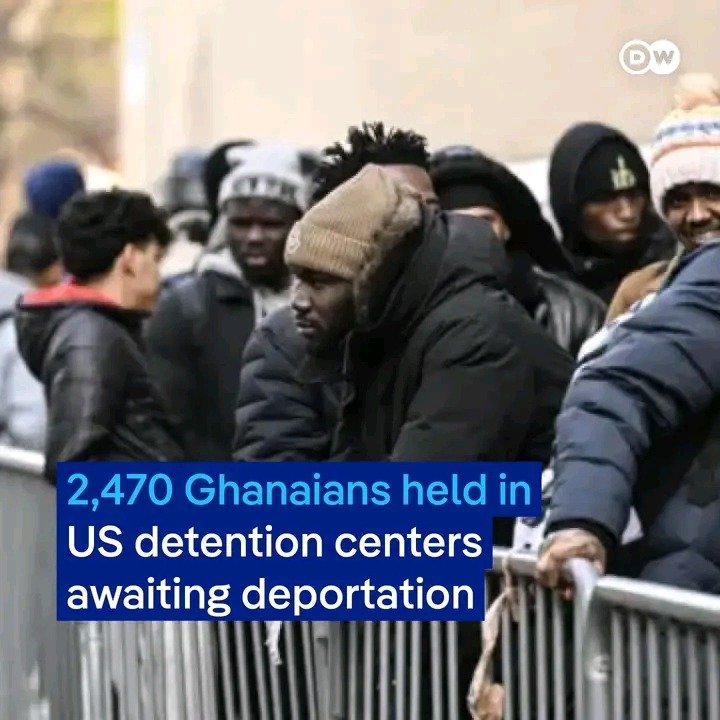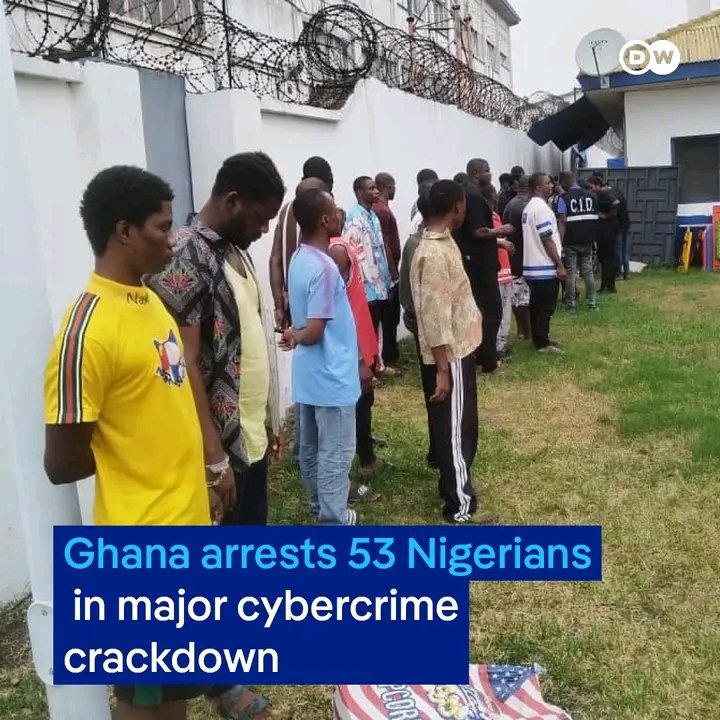
Record Number of Ghanaians Face Deportation as US Intensifies Immigration Enforcement
October 14, 2025 – A staggering 2,470 Ghanaian nationals are currently detained in U.S. immigration facilities awaiting deportation, according to new Department of Homeland Security (DHS) data that reveals one of the highest figures on record for Ghanaian citizens caught in America’s intensified immigration enforcement system .
The Trump administration’s tougher immigration measures, particularly the Global Enforcement Initiative launched in April 2025 to accelerate deportations worldwide, have contributed significantly to this sharp increase in arrests of foreign nationals . So far this year, 478 Ghanaians have been arrested by Immigration and Customs Enforcement (ICE) officers under this sweeping operation .
Enforcement Initiative Drives Deportation Surge
The data shows a dramatic escalation in both arrests and removals of Ghanaian nationals in 2025. Between January and August of this year, 312 Ghanaians were deported from the U.S. to Accra, representing a 17% increase compared to the same period in 2024 . This marks one of the sharpest year-on-year increases in nearly a decade, far exceeding the typical annual deportation range of 200-250 Ghanaians observed between 2018 and 2023 .
The surge follows two major policy developments: the Global Enforcement Initiative launched in April 2025, which expanded ICE’s capacity to pursue removals across multiple regions, and a February 2025 executive order that prioritized deportations for individuals with criminal records and those flagged as national security risks .
Table: Key Statistics on Ghanaian Nationals in U.S. Immigration System
Category Figure Time Period Source
Ghanaians in ICE detention 2,470 Current as of October 2025 DHS
Ghanaians arrested by ICE 478 January 2025 – October 2025 DHS
Ghanaians deported 312 January 2025 – August 2025 DHS
Broader Immigration Detention Context
The situation facing Ghanaian detainees occurs within a larger transformation of U.S. immigration enforcement under the Trump administration. Government data reveals that immigrants with no criminal record are now the largest group in ICE detention, numbering 16,523 compared to 15,725 with criminal records and 13,767 with pending charges .
This represents a significant shift in enforcement patterns. According to ICE’s latest numbers, 71.5% of current detainees—42,755 out of 59,762 individuals—have no criminal convictions, according to data current as of September 21, 2025 . Many of those with convictions committed only minor offenses, including traffic violations .
ICE has defended its approach, with DHS Assistant Secretary for Public Affairs Tricia McLaughlin stating, “The facts are ICE is targeting the worst of the worst – including murderers, MS-13 gang members, pedophiles, and rapists” . She further claimed that 70% of ICE arrests are “criminal illegal aliens” who have been convicted or have pending charges in the U.S. .
Diplomatic and Humanitarian Implications
The rising deportation numbers have created both diplomatic and humanitarian challenges for both Ghana and the United States . Migration experts warn that “if current trends continue, Ghana could receive nearly 500 deportees by the end of 2025 — the highest in over a decade” .
This potential influx places additional pressure on Ghana’s limited reintegration systems. The Ghana Immigration Service says it is working with the Ministry of Foreign Affairs and the Interior Ministry to strengthen arrival procedures and ensure deportees are treated with dignity .
The Ghanaian Embassy in Washington, D.C. has been engaging U.S. authorities to ensure that deportation procedures follow due process and that the rights of detainees are protected under international law . This diplomatic engagement occurs amid ongoing concerns from immigrant rights organizations about the rising number of detainees and conditions in immigration detention centers .
Legal Challenges and Rights Concerns
Immigrant rights advocates have raised alarms about the expanding scope of enforcement. They argue that the new framework “casts too wide a net, capturing long-term residents, overstayers, and low-level offenders who have lived and worked in the U.S. for years” .
The U.S. government’s approach to deportations has faced legal challenges in several prominent cases. In one high-profile instance, the Trump administration attempted to deport Kilmar Abrego Garcia, a Salvadoran native, to Ghana despite Ghana’s foreign minister explicitly stating the country would not accept him . Ghana’s Foreign Minister Samuel Okudzeto Ablakwa wrote on social media that “He cannot be deported to Ghana. This has been directly and unambiguously conveyed to US authorities” .
The administration’s deportation strategies have included attempting to send detainees to third countries, including several African nations. In the Abrego Garcia case, ICE official John Schultz testified in federal court about discussions with Uganda, Eswatini, and Ghana about accepting the deportee, though all three efforts ultimately failed .
Looking Forward
As the U.S. continues its immigration enforcement push, the 2,470 Ghanaians currently in ICE custody face an uncertain future, awaiting decisions that will determine whether they return to Ghana voluntarily or in handcuffs . With the Trump administration directing ICE to toughen their tactics and arrest 3,000 people per day—or 1 million per year—the situation remains fluid and potentially challenging for thousands more immigrants .
The rising deportation numbers represent both a humanitarian concern for affected individuals and families and a diplomatic consideration for both nations as they navigate the complexities of international migration enforcement amid political pressure and tightening borders .







